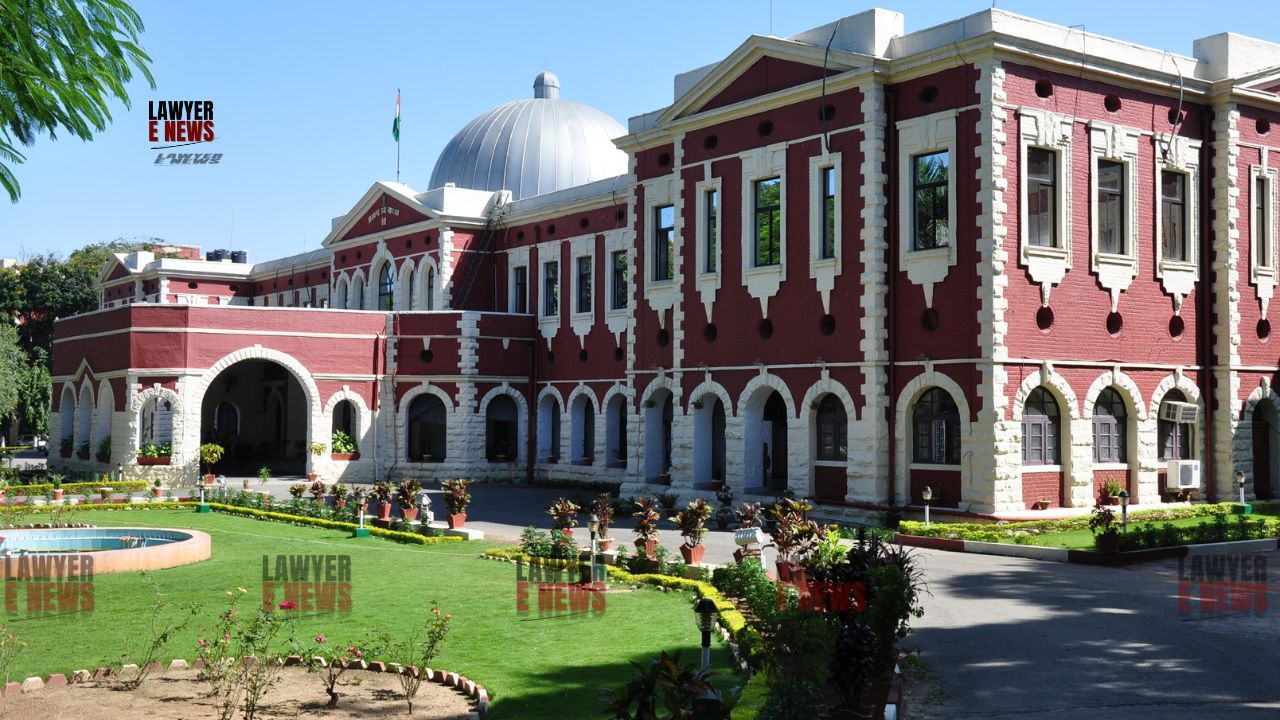-
by Admin
15 February 2026 5:35 AM



Jharkhand High Court, in Brajesh Kumar Singh v. The State of Jharkhand, overturned the conviction of the petitioner under Section 25(1-B)(a) of the Arms Act, 1959, and Section 120(B)(2) of the Indian Penal Code (IPC). The court found that the prosecution failed to conclusively establish the petitioner’s guilt, particularly due to non-seizure of the box from which firearms were allegedly recovered, and contradictory witness statements regarding the ownership and condition of the box. The judgment underlined the importance of proper evidence handling and procedural compliance in criminal trials.
The court highlighted that the box, which purportedly contained the firearms and was attributed to the petitioner, was never seized, and there was no clear evidence linking the box or its contents to the accused. This serious procedural lapse led the court to quash the conviction, emphasizing the prosecution's failure to prove the petitioner’s guilt beyond a reasonable doubt.
The case originated from an incident on August 22, 2011, when a raid was conducted at the police barracks where Brajesh Kumar Singh, a police constable, resided. The raid was based on the confessional statement of a co-accused, Sonu Khan, in another case. During the raid, a 9mm pistol, live cartridges, and Rs. 10,000 in cash were allegedly recovered from an unlocked box near the petitioner’s bed. However, the petitioner, who was on duty at the time, denied any connection to the box, arguing that it was not locked and could have been accessed by anyone in the barracks.
The trial court convicted the petitioner based on the recovery of the firearms and sentenced him to 2.5 years of imprisonment under the Arms Act and 6 months for criminal conspiracy under Section 120(B)(2) IPC. The appellate court later reduced the sentence to time already served but upheld the conviction.
Non-Seizure of the Box and Lack of Identification: The prosecution failed to seize the box from which the firearms were allegedly recovered. No effort was made to conclusively link the box to the petitioner, and several prosecution witnesses admitted that the box was unlocked and did not bear the petitioner’s name.
“The prosecution neither seized the box from which they alleged that the arms and ammunitions were recovered, nor in the seizure list is there mention of lock, key, or clothes in the box.” [Para 36]
Contradictory Witness Statements: Key witnesses, including the officers present during the raid, gave inconsistent statements regarding the condition of the box and whether it belonged to the petitioner. Some witnesses admitted that the box was not locked and that no inquiry was made at the time of recovery to establish the box’s ownership.
“PW-2 admitted that no name was written on the box and the petitioner was not enquired in his presence as to whether the box belonged to him or not.” [Para 34]
Failure to Prove Guilt Beyond Reasonable Doubt: The court emphasized that the prosecution failed to prove the petitioner’s connection to the firearms beyond a reasonable doubt. The box was accessible to multiple people in the barracks, and there was no conclusive evidence linking the petitioner to the recovered items.
“The prosecution has failed to connect the seized firearms and the box from which the firearms were seized with the petitioner, and therefore, the prosecution has failed to prove the charges against the petitioner beyond reasonable doubt.” [Para 37]
Procedural Lapses and Miscarriage of Justice: The court found that the trial and appellate courts had overlooked critical evidence and procedural shortcomings, leading to a miscarriage of justice. The non-seizure of the box, lack of clear identification, and absence of the petitioner during the raid all contributed to the court’s decision to overturn the conviction.
"The impugned judgments suffer from serious illegality and cannot be sustained in the eyes of law. Therefore, this Court is inclined to exercise its powers under revisional jurisdiction to rectify the error committed by the learned courts." [Para 39]
Non-Seizure of Box: The prosecution did not seize the box, which was crucial to proving the petitioner’s possession of the firearms. The lack of a detailed seizure list mentioning the condition of the box or other contents further weakened the case.
Inconsistent Witness Testimonies: Witnesses provided conflicting accounts regarding the state of the box and whether it was locked or unlocked. The absence of the petitioner during the raid also raised doubts about the integrity of the evidence collection.
No Direct Link to Petitioner: The court found that the prosecution failed to establish any direct link between the petitioner and the seized firearms, as the box was left unattended in a shared barrack accessible to multiple individuals.
“Considering the totality of the facts and circumstances of this case... the prosecution has failed to prove the charges against the petitioner beyond reasonable doubt.” [Para 37]
The Jharkhand High Court set aside the petitioner’s conviction under the Arms Act and Section 120(B)(2) IPC, acquitting him of all charges. The court emphasized that procedural lapses, including the non-seizure of key evidence and contradictory witness statements, rendered the prosecution's case unreliable. The judgment underscores the necessity of thorough evidence collection and adherence to proper procedures in criminal cases.
Date of Decision: 18/09/2024
Brajesh Kumar Singh v. The State of Jharkhand
